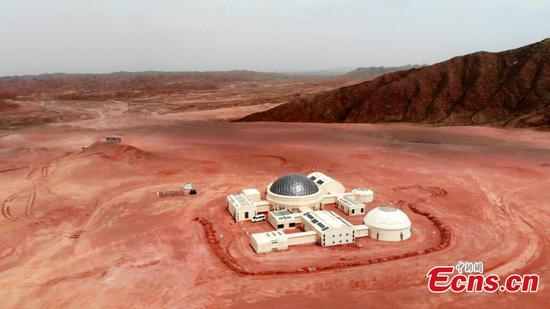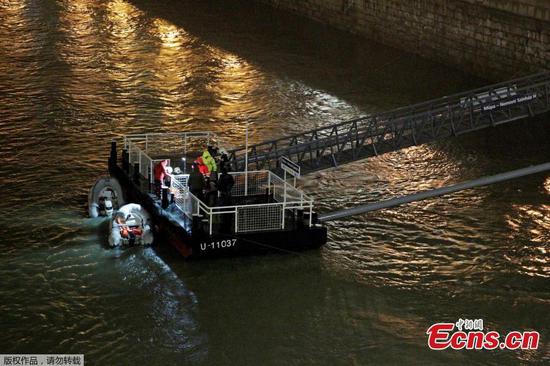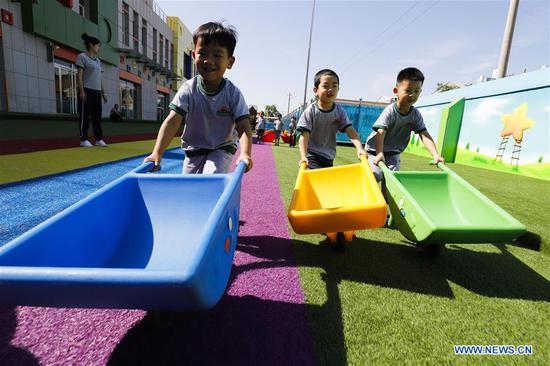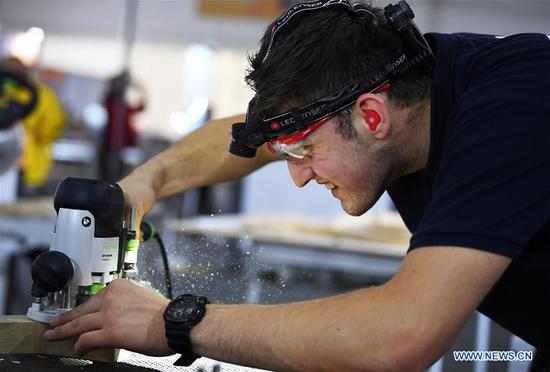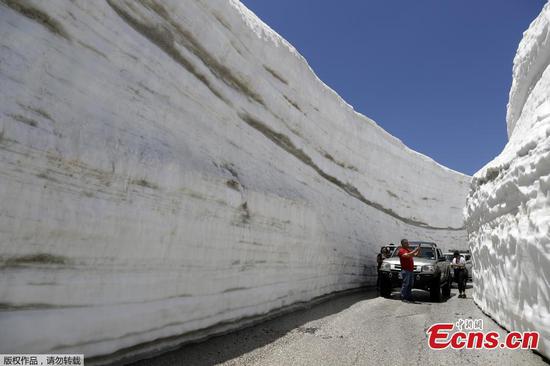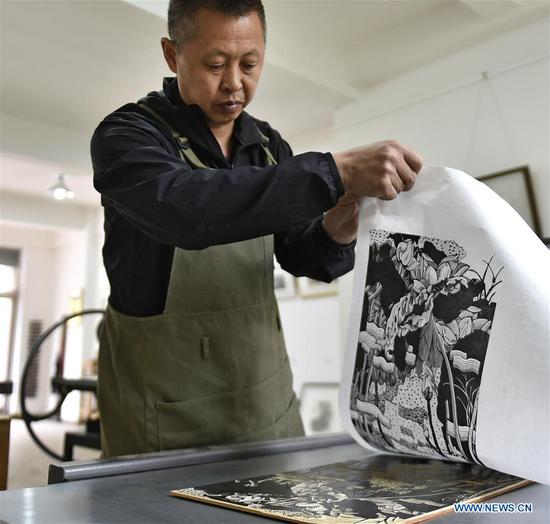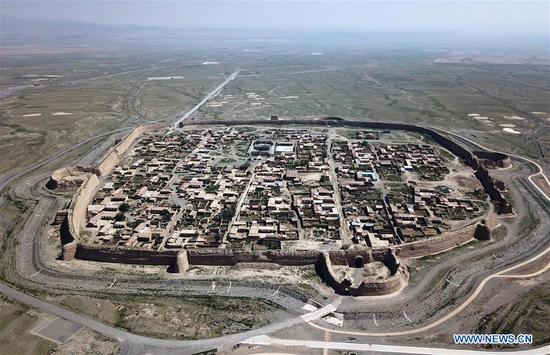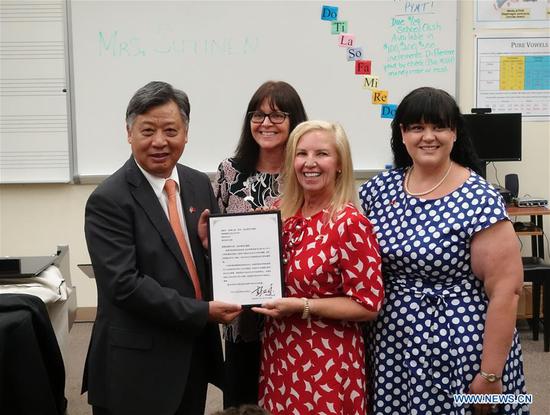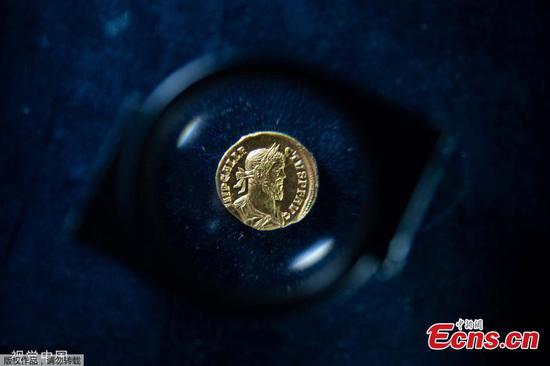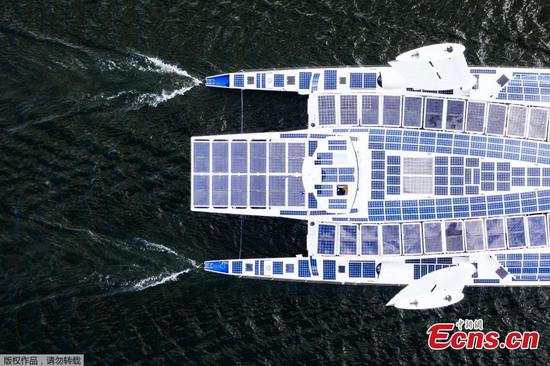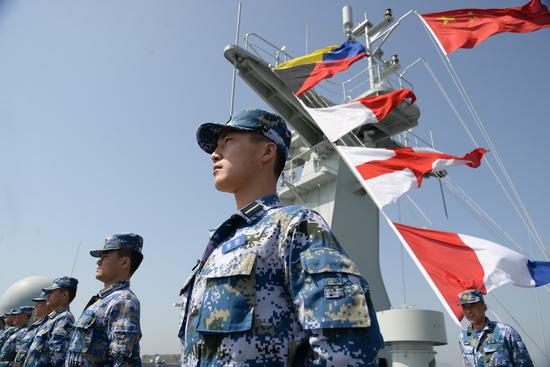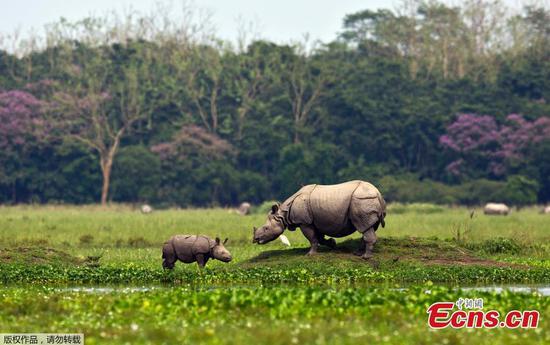The U.S.-initiated tariff conflict with China will substantially diminish investment and undermine productivity growth if staying in place for longer, experts from a Washington-based think tank have said.
Adam Posen, president of the Peterson Institute for International Economics (PIIE), said at a press briefing on Tuesday that if the United States goes full out on the tariffs, the direct impact would be overall increases in inflation, with low income households hit harder than others.
Despite an expected drag on growth, Posen, drawing on works by his colleagues, said the impact of additional tariffs could be partially offset by fiscal or monetary measures in both countries, so the direct effects are "meaningful but not huge."
However, in the medium term, the effects on investment and productivity growth are "substantial," he said.
"Removing the attractiveness of foreign direct investment not just in supply chains but in branded goods and in business services ... is significant," Posen said.
In the long run, Posen said, "you can end up with a very substantial disruption to the most productive parts of the U.S. economy for a couple of years."
Nicholas Lardy, a senior fellow at the think tank, said he does not see a significant impact on China's GDP growth this year.
Lardy, who has written several books on the Chinese economy, said it would probably be "not so smart" for companies to massively move supply chains away from China, because it would be difficult to find a place that could "absorb that big an increase."
In addition to economic impact, Posen said the United States, by imposing tariffs, has sent a "disruptive" message to China and other countries, which could "divide the world" on important issues.
The group of experts, who visited China earlier this month, are also concerned about increased frictions on the investment and high tech fronts.
"The broader tech conflict is much more harmful on the engine of the U.S. economy," Posen said, noting that the U.S. administration's "broad export control regime" would likely impede cross border technology flows.
Such frictions may also make it harder for the United States and China to close a deal, as the depth of mistrust is growing, said Jeffrey Schott, a senior fellow at the PIIE.
"Clearly we are much further away from a deal than we were at the end of April," he said, yet adding that he does not think "the door is shut."










